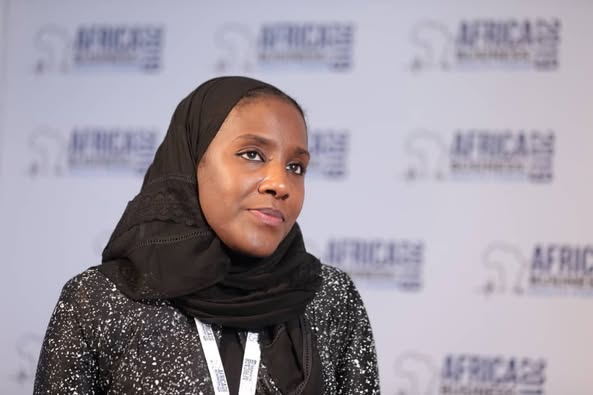Family-owned businesses contribute to global economy, says Halima Dangote

Halima Dangote
Halima Aliko-Dangote, group executive director of Dangote Industries Limited (DIL), says family-owned businesses (FOBs) contribute significantly to the global economy in ways that are often overlooked.
Aliko-Dangote spoke during the Forbes Global CEO Conference in Bangkok, Thailand, during a panel session, tagged, ‘Family Business: Looking at the Next Frontier’.
“FOBs have proven to be resilient, weathering challenges and thriving across multiple decades. Despite facing external pressures, many FOBs not only survive but also grow, contributing significantly to the global economy in ways that are often underestimated or overlooked,” she said.
Aliko-Dangote said success in family-owned businesses starts with shared values, goals, governance policies and alignment, adding that reputation is a component of “family capital”.
According to the executive director, governance structure, adherence to core values, customer satisfaction, optimisation of shareholder value, meritocracy, integrity, leadership, brand equity, diversification and growth, philanthropy and preserving generational wealth “play crucial roles in the success of our businesses”.
She said Dangote Group’s governance policies do not allow the board and management to operate in isolation as each business unit has at least three independent directors who give a holistic view.
“We family-owned businesses have to stick to our tradition of asset rich-cash moderate or as my father will correct me, asset rich-cash poor. We as Dangote perpetuate a profitable business with strong values and strong governance structure,” she said.
“We make money while building our nation by contributing heavily to the global economy, creating massive jobs, thinking of our great grandkids and contributing excessively to humanity.”
Highlighting the contribution of FOBs to the global economy, Halima said studies by Mckinsey showed that they account for more than 70 percent of global gross domestic product (GDP), generate annual turnovers of between $60 trillion and $70 trillion, and provide around 60 percent of global employment.
She stressed the crucial role the businesses play in sustaining communities and driving development in sectors such as manufacturing, education, healthcare, and infrastructure across the globe.
Aliko-Dangote said FOBs often employ two key approaches in preparing the next generation for leadership roles including internal and external capacity building.
Regarding internal capacity building, Halima said many families create internship programmes for young family members interested in taking over the business or assuming leadership positions.
“In Nigeria, we train the next generation so they can grow organically to leadership roles in family businesses. My dad’s approach is for you to start from ground up knowing you will get to leadership role if you work hard and do your job right,” she said.
“These experiences make it easier for you to learn the ropes and be prepared for leadership role in the future.”
On external capacity building, she said it entails the practice of sending younger generations to work in non-family businesses.
“This approach enables them to acquire new skills, learn better processes, and gain diverse perspectives that can benefit the family business in the long run,” she said.
The approach, she explained, “removes the familiarity tag as the young generation got employed as other people and supervised to monitor their performance”.











